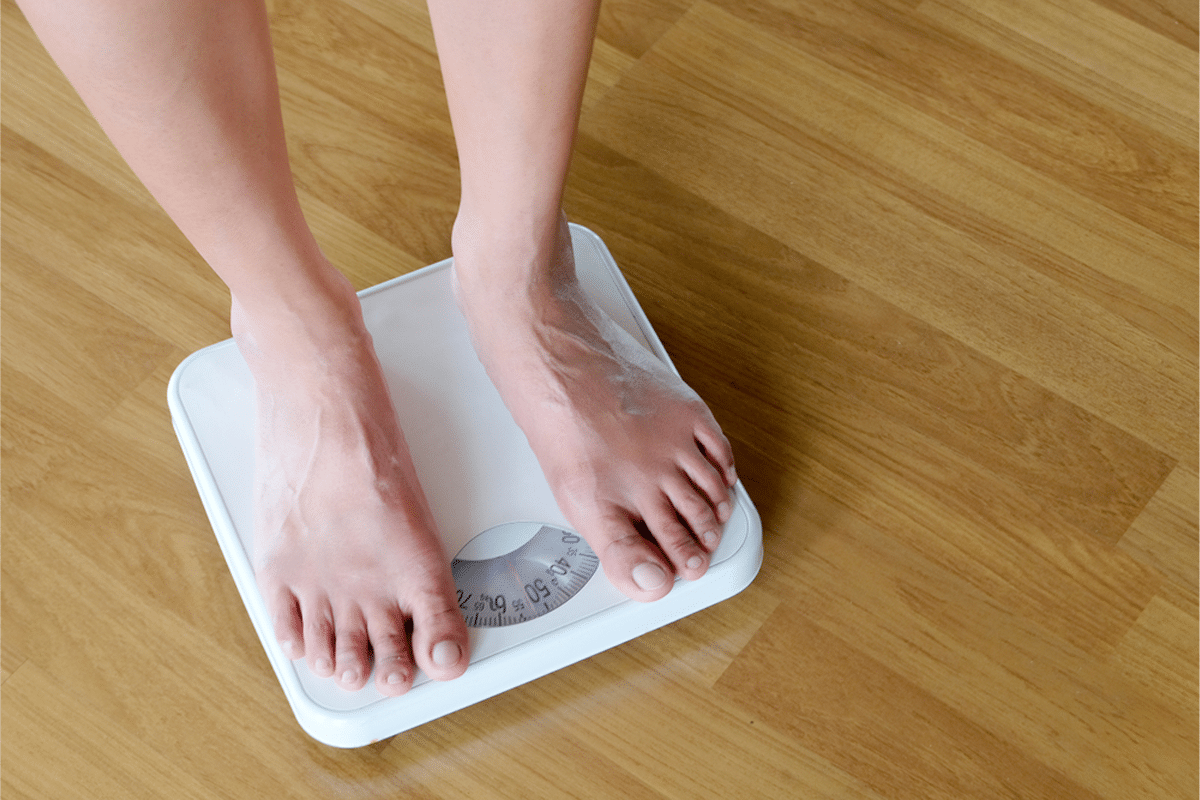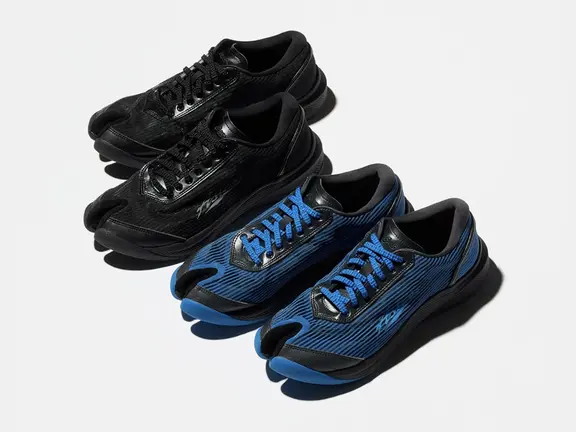Readtime: 8 min
Every product is carefully selected by our editors and experts. If you buy from a link, we may earn a commission. Learn more. For more information on how we test products, click here.
If you find yourself in the yo-yo fitness cycle of bulking and cutting but you aren’t seeing results, then chances are, your intake needs an upgrade. More often than not, it’s calories that are setting you back. Not knowing how many calories you should eat in a day is a sure-fire way to slam the brakes on your progress. We hear it all the time; you are what you eat, but when it comes to the ideal number of calories per day, it’s true. The average man needs about 2,500 daily calories per day. But, before we get into the science, let’s tick off a few of the basics.
What are Calories?
A calorie is a unit that measures energy. Simple, we know, but vitally important to understand. We most commonly see the term calorie when we discuss the energy content of the food and drink that we ingest. From a nutritional aspect, all types of food — whether they are fats, proteins, carbohydrates or sugars — are important sources of calories, which people need to live and function.
If you really want to dive deep into the history books, it starts back in 1863 when scientists first defined a calorie as the amount of heat needed to raise the temperature of 1 kilogram of water from 0 to 1 degree Celsius. Then in 1925, calories became scientifically defined in terms of joules, units typically used by physicists to describe the amount of work needed to force one newton through one meter. That’s why here in Australia and in Europe, we utilise the term ‘kilojoules’.

How Many Calories Per Day?
There is no hard and fast rule for determining the exact amount of calories you should eat per day. Factors such as lifestyle, genetics, gender and weight will ultimately play a significant role in your caloric situation. The easiest way to look at things is to start with your goal. Do you want to;
- lose weight,
- add muscle, or
- maintain mass?
Your goal will ultimately determine the number of calories you should eat per day, however as a general rule, dieticians will work on ‘maintenance’ levels. Also referred to as Total Daily Energy Expenditure (TDEE), or how many calories you need to eat to maintain your current weight. According to the United States Dietary Guidelines, for maintenance, the average woman needs to eat about 1,600 to 2,400 calories per day, with the average man needing 2,000 to 3,000 daily calories. For reference, the ‘average’ man used for this figure is 5 feet 10 inches tall and weighs 154 pounds. The reference woman is 5 feet 4 inches tall and weighs 126 pounds. If your goal isn’t maintenance, however, this figure will need a bit of adjusting.
You’ll also like:
34 Best Bodyweight Exercises for Men
Charles Bronson’s Ultimate Prison Bodyweight Workout
15 Best Healthy Snacks for Weight Loss
What is BMR?
Whether your goal is to lose weight or add muscle, the first thing to do is figure out what your TDEE calorie needs are. Your TDEE is calculated by first figuring out your Basal Metabolic Rate (BMR), then multiplying that value by an activity multiplier.
Your BMR represents how many calories your body burns when at rest. This is important for determining how many calories you should eat per day because it gives you a better understanding of how to eat and how much to work out. There are three formulas for determining your BMR; the Mifflin-St Jeor Equation, the Revised Harris-Benedict Equation and Katch-McArdle Formula. All of these are presented using metric measurements, where;
- W is body weight in kg
- H is body height in cm
- A is age
- F is body fat in percentage
Mifflin-St Jeor Equation:
For men: BMR = 10W + 6.25H – 5A + 5
For women: BMR = 10W + 6.25H – 5A – 161
Revised Harris-Benedict Equation:
For men: BMR = 13.397W + 4.799H – 5.677A + 88.362
For women: BMR = 9.247W + 3.098H – 4.330A + 447.593
Katch-McArdle Formula:
BMR = 370 + 21.6(1 – F)W
Each BMR formula will have a slightly different result, so it’s important that you take the measurements as a guide. Certain factors such as muscle mass, age, diet, supplements and genetics can all skew the results, so be aware this figure may not be 100 per cent accurate. Additionally, your level of activity also plays a significant role. If you are an office worker who rides the desk nine hours a day, you will likely burn far fewer calories than someone who is a bricklayer or manual labourer. If you would like to find an exact BMR figure, it is best advised to visit a health care provider who can perform the appropriate tests.
How Many Calories to Lose Weight?
Now we’re into the good stuff. Once you have a firm grip on your BMR, you can properly ask yourself “how many calories should I eat a day to lose weight”. From a basic physiological standpoint, weight loss only occurs when you expend more calories than you intake.
As a general rule, eating around 500 calories per day less than your TDEE will result in the loss of one pound of weight per week. While it’s important to note that cutting your calorie intake by more will speed up your weight loss, it is not advised that you dip more than 500 calories per day under your TDEE. This way you can ensure you are not starving yourself, and are still maintaining the required amount of calories needed to sustain muscle, reduce fatigue and stay healthy.
5 Tips to Reduce Calories to Lose Weight
1. Drink more water
One of the simplest ways to reduce your calorie intake is to drink more water. Staying hydrated can help you to feel fuller for longer, meaning you aren’t snacking constantly. Additionally, the greater your water consumption, the better your body becomes at regulating your required food intake. A 12-week study by the National Institutes of Health revealed that drinking 17 ounces (0.5 litres) of water half an hour before meals helped people to lose 44% more weight.
2. Eat more protein
As far as losing weight goes, your biggest friend in the endeavour is definitely protein. Adding protein to your diet is the simplest and most effective way to lose weight with minimal effort. Studies show that protein can help to increase metabolic rate, whilst simultaneously curbing your appetite. This is because protein requires energy to metabolise, so eating a high-protein diet can increase the calories burned
3. Eat larger meals
This piece of advice doesn’t necessarily equate to eating more. In fact, it actually means quite the opposite. In order to reduce the number of calories you are consuming, focus on eating larger meals at designated meal times. This way, you may be less likely to snack and fill up on sugary drinks and treats.
4. Exercise and lift weights
In order to offset the reduction in calories you are consuming, your body will do this tricky thing where it compensates by saving energy, making you burn less. To combat this, you must exert your muscles by lifting weights. Lifting weights has been repeatedly shown to prevent muscle loss and stop your metabolism from slowing during long-term calorie restriction.
5. Choose low-GI carbs
Swapping high GI carbs for low GI carbohydrates is a highly effective method for reducing your calories. Eating more complex low GI carbs will help fill you up for longer and may also have many other benefits for health, especially for people with type 2 diabetes or metabolic syndrome.

Online calorie calculator
Just to make things easier, we’ve added this handy online calorie calculator. Rather than figure out your TDEE by yourself, just input your gender, height, weight, age and daily activity level, and the tool will calculate your BMR, detailing your daily maintenance calories. If you’re wondering how many calories per day, you can find it here. As mentioned above, to determine how many calories to lose weight, subtract around 500 from your TDEE. It’s as simple as that!
General FAQ
Though it differs depending on age and activity level, adult males generally require 2,000-2500 calories per day to maintain weight while adult females need around 1,600-2,400 according to the U.S Department of Health.
Caloric deficit is the state where you expend more calories than you consume.
Studies show that drinking cold water will burn more calories than warm water. The effect mostly comes from the body needing to heat up the water in your digestive tract.
You’ll also like:
34 Best Bodyweight Exercises for Men
Charles Bronson’s Ultimate Prison Bodyweight Workout
15 Best Healthy Snacks for Weight Loss






























Comments
We love hearing from you. or to leave a comment.